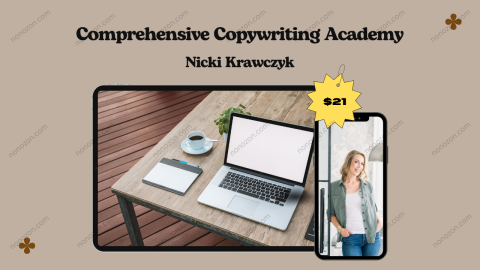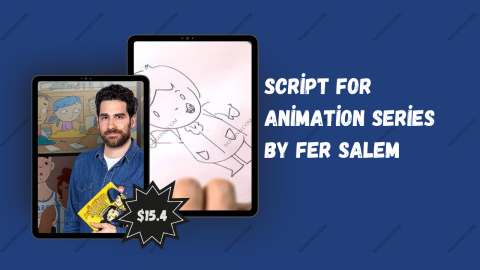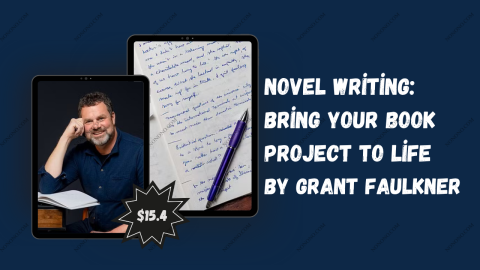Writer’s Film School Diploma
by John Truby
Review of Writer's Film School Diploma by John Truby
Check proof of content here:
In the vast landscape of screenwriting education, few names command as much respect and recognition as John Truby. Known for his practical yet profound approach to storytelling, Truby has dedicated his career to mentoring aspiring writers through the complexities of narrative construction. His Writer's Studio, also known as John Truby’s Film School, offers a comprehensive suite of courses designed to transform novice storytellers into skilled writers. With a curriculum that combines psychological insight, genre exploration, and moral considerations, Truby invites students to develop a well-rounded skill set in storytelling. For those eager to dive into the world of screenwriting, this educational journey could serve as a crucial stepping stone, providing both guidance and inspiration.
The Legacy of John Truby in Screenwriting
An Acclaimed Mentor in the Industry
John Truby has established himself as a leading figure in the world of screenwriting education. With over 50,000 students trained worldwide, his methods have deeply influenced the writing community. Truby stands out for his focus on character-driven stories, diverging from traditional screenwriting instructors who prioritize structural formulas. His approach is rooted in an intimate understanding of human experience, emphasizing that powerful narratives aren’t simply driven by conflict but by the rich complexities of character development. To illustrate: just as a gardener nurtures roots to ensure vibrant flowers, a writer must tend to their characters to cultivate compelling stories.
Curriculum Overview: A Unique Approach
At the heart of Truby's Writer's Studio lies his groundbreaking 22-step outline—a system designed to unpack the complexities of plot development. Based on his well-regarded book, The Anatomy of Story, this outline serves as a roadmap for crafting resonant narratives across various genres. Truby’s approach transcends the conventional three-act structure, encouraging a fluid and dynamic understanding of storytelling. Rather than simply arranging events, Truby stresses the importance of exploring the moral dilemmas characters face, which in turn deepens the narrative and elevates storytelling beyond entertainment.

In-Depth Learning Experience at Truby's Writer’s Studio
Comprehensive Workshops and Courses
Truby’s Writer’s Studio offers a diverse range of workshops and courses to suit writers at various stages in their careers. Whether you're a beginner just starting out or an experienced writer looking to deepen your craft, Truby’s curriculum provides the tools necessary to enhance your writing. Here’s a brief overview of the available courses:
Foundational Screenwriting Course: Aimed at newcomers, this workshop introduces the essentials of narrative development and character building.
Advanced Storytelling Techniques: Geared towards experienced writers, this course explores deeper thematic elements and advanced genre mechanics.
Genre Mechanics Workshops: These focused sessions examine different genres in detail, helping writers understand audience expectations and genre-specific tropes.
Emphasis on Moral and Philosophical Storytelling
One of Truby’s most unique contributions is his focus on the moral and philosophical dimensions of storytelling. By encouraging students to consider the ethical and emotional undertones of their narratives, he fosters a more holistic understanding of the storytelling process. According to Truby, every story should strive to illuminate a universal truth, similar to the timeless lessons found in ancient fables. This perspective inspires writers to infuse their work with deeper meaning, elevating their stories from mere entertainment to profound reflections on the human condition.
The Role of Genres in Narrative Structure
Navigating Through Diverse Genre Constructs
In his recent work, The Anatomy of Genres, Truby delves into how various genres intersect and influence one another. He argues that a deep understanding of genre enhances a writer’s ability to craft compelling narratives while aligning with audience expectations. A helpful comparison can be made between genres and music: just as a jazz musician adapts their style to suit the band, a screenwriter must adjust their storytelling techniques to fit the conventions of their chosen genre. Below is a simplified breakdown of various genres and their typical features:
| Genre | Expected Themes | Typical Plot Elements |
|---|---|---|
| Drama | Conflict, moral dilemmas | Character-driven story arcs |
| Comedy | Humor, satire | Situational irony, misunderstandings |
| Thriller | Suspense, anxiety | Fast pacing, plot twists |
| Romance | Love, relationships | Emotional connection, tension |
Interconnectedness of Genres
Truby emphasizes the fluidity of genres and their potential for cross-pollination. For example, a drama can incorporate a romantic subplot, or a thriller might blend in comedic moments for contrast. This interplay allows writers to create multi-layered narratives that keep audiences engaged and entertained. Truby’s exploration of these intersections provides writers with the flexibility to experiment within their stories and generate unexpected twists.
Why Choose Truby’s Writer’s Studio?
A Transformative Learning Environment
Choosing to study at Truby's Writer's Studio is a decision to embark on a transformative journey. The environment is designed not only to educate but also to inspire creativity. Truby’s methods challenge writers to dig deep within themselves, uncovering stories that reflect both their personal experiences and universal truths. This nurturing atmosphere supports the belief that great writers are both born and made, giving students the opportunity to develop their unique voices in a field filled with diverse narratives.
Community and Networking Opportunities
An essential feature of Truby's Writer's Studio is its sense of community. Writers from all walks of life come together, forming a network that is invaluable for their careers. Through collaborative projects and peer feedback, the program fosters an environment rich in constructive criticism and mutual support. This network can be an essential asset as writers navigate the competitive world of film and television screenwriting.
Conclusion
In conclusion, the experience at Truby's Writer’s Studio is both enriching and multifaceted. The curriculum blends practical screenwriting skills with philosophical depth, guiding students through not only the “how” of narrative construction but also the “why” of storytelling. For aspiring screenwriters, enrolling in Truby’s courses is more than just an educational choice—it’s a commitment to honing one’s craft and finding one’s voice in the world of storytelling. By following the pathways laid out by Truby, students emerge not only as better writers but also as insightful storytellers, equipped to explore the depths of the human experience through the powerful medium of film and television.




